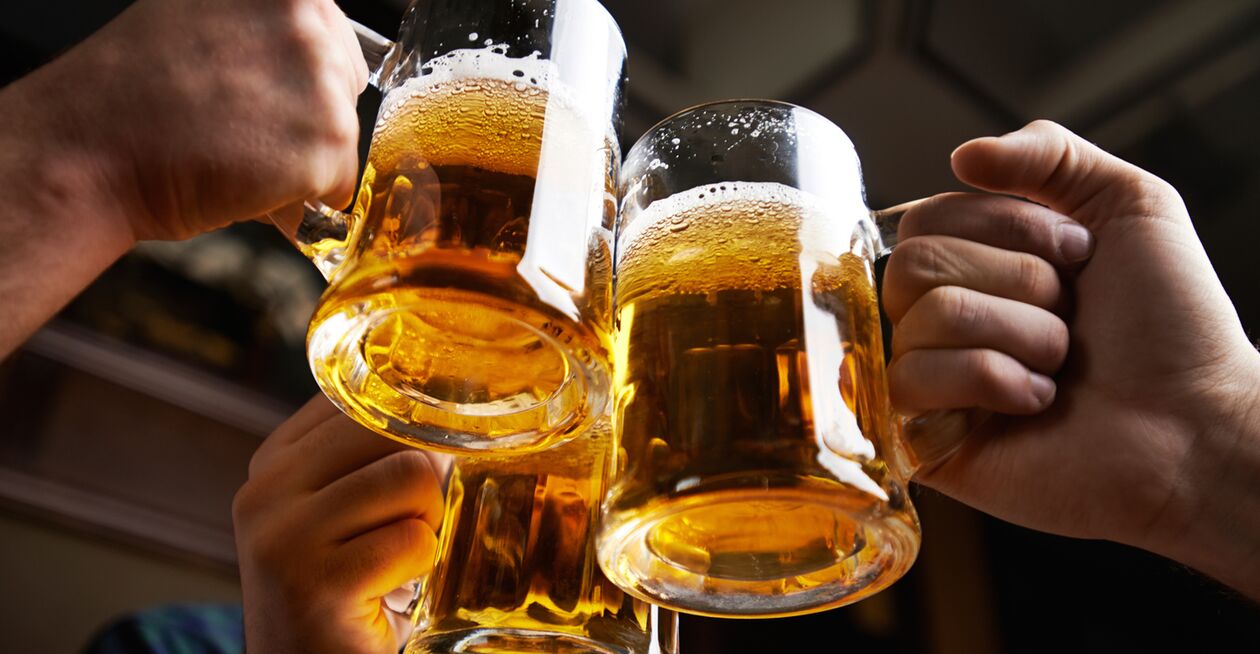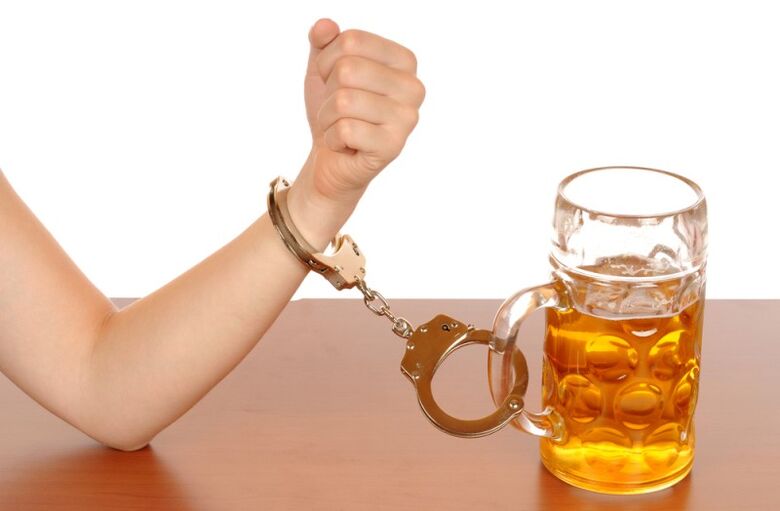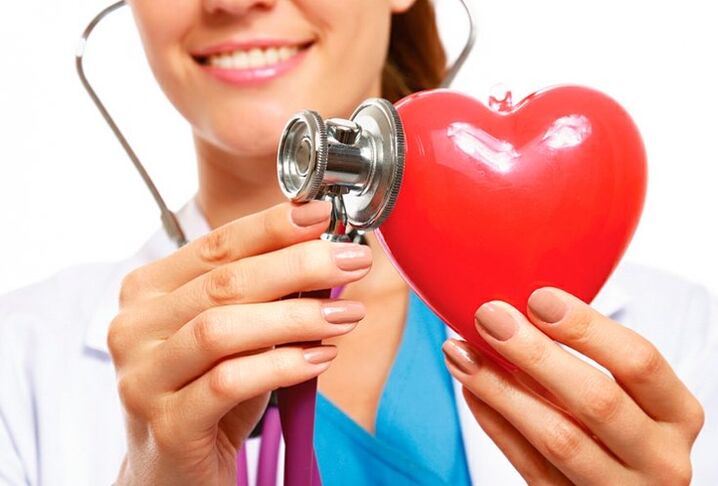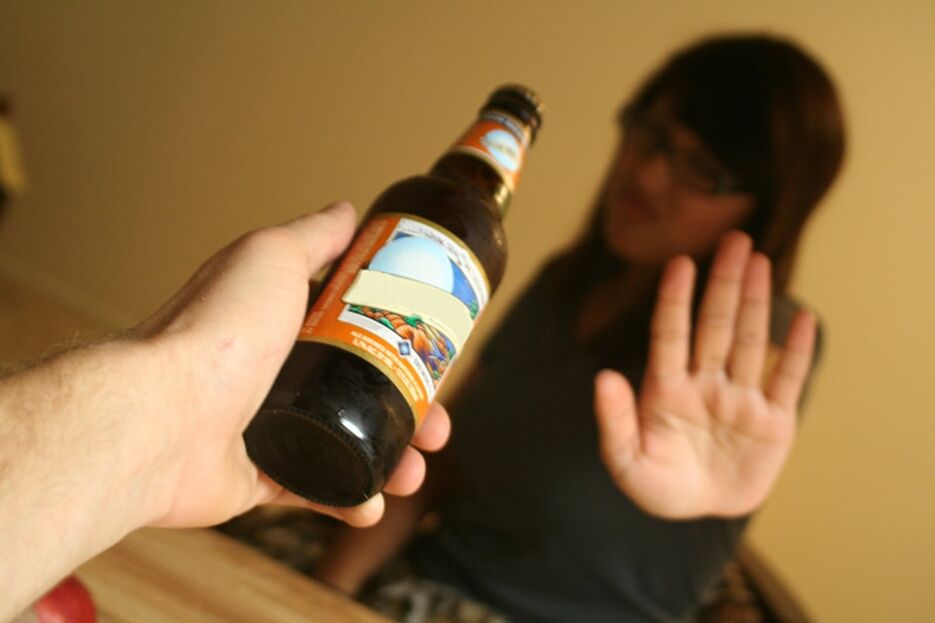Regular drinking of any type of alcoholic beverage cannot last long without consequences. The so-called addiction to beer develops much more slowly than addiction to strong alcohol, and this is its particular danger.

What is the danger of beer?
For the development of alcoholism, the type of alcohol does not matter. The disease is formed when drinking alcohol, vodka, moonshine, alcoholic cocktails and beer. The only thing that low-alcohol drinks affect is the rate at which the addiction develops. In this regard, beer is considered one of the most dangerous drinks. And that's why.
- The alcohol content in it contains from 4 to 14%, which is not cause for concern for the majority. Indeed, in innocuous drinks like kvass or kefir, alcohol is included.
- Beer is very good. Unlike vodka or moonshine, which must be "pushed" inside, intoxicating liquids can be enjoyed as much as you like and you often want to repeat the fun.
- In terms of popularity, beer ranks first among most segments of the population: men, women, and teenagers drink it. In haunting advertising, it is presented as a regular soft drink.
- In addition to alcohol, most alcohol contains a number of substances that negatively affect the endocrine and cardiovascular systems.
If we consider the above facts in more detail, it is clear that nothing is safe in this drink. Regularly drinking beer is not condemned by society. On the contrary, there are arguments in favor of it. It is recommended to compensate for vitamin deficiencies or to improve digestion. For this reason, many people show no signs of stopping psychologically, such as when abusing hard alcohol begins. Drinking vodka is considered shameful and unhealthy, and drinking beer every day is just a form of relaxation. Some do not consider it dangerous to give drugs to children "to promote health. "
Signs and characteristics of beer addiction
Regular arithmetic allows you to determine what threatens a drinking session with frequent binge drinking. In 1 liter of weak beer, 40 ml of pure ethanol, in strong varieties - 120-140 ml. In the second case, the daily allowable amount of alcohol for men was doubled. And if you consider 1 liter to be drunk just for "overclocking", and then not counting the amount, then it is clear that the consequences of drinking beer are inevitable.

From a normal hobby, the addiction flows smoothly into a psychological dependence, while the abuser is quite confident in his own health, does not put himself on the same level as an alcoholic, and continues to drink beer every day. . You can understand that the disease is developing when the following situations arise:
- upcoming gatherings with beer cause impatience and cheerful expectations, for their sake you can postpone less important things;
- the hangover comes on quickly and lasts a long time;
- at least 1. 5 liters are drunk per day, the maximum is not exactly known;
- days when you can't drink regular beer for some reason, get excited, have a low mood, can only return a few new cans or bottles;
- Weak beer seems like water, you want to drink the strongest;
- the people around and the mirror began to notice changes in appearance: puffiness in the face, swelling in the body, bags under the eyes, pale earthy skin;
- more often than usual there are shortness of breath, chest pain, rapid pulse;
- the next morning after drinking beer, my head hurts, I want to drink some more to "get well".
The appearance of even one of the signs contrary to the daily "hobby" indicates that you are addicted to beer, the symptoms of which will be felt more strongly in the future.
Ornithologists don't recognize any specific characteristics of alcoholism depending on the type of drink they enjoy, but they do agree that beer addiction is very insidious. It is difficult to identify it at an early stage, since there are no obvious changes in people's lifestyle and health. For example, a wife in a situation where her husband drinks beer every day may not notice any external signs of dependence.
Alcoholism in men is often disguised as a somatic disorder. Often, heart problems, headaches, and irritability are mistaken for accumulated fatigue.
Health effects of beer abuse
The consequences of alcoholism affect to a lesser extent intellectual, moral and personal aspects. Drinkers are less likely to lose job skills and maintain balance in behavior and judgment, unlike those who drink hard alcohol on a daily basis. This is a feature of weak alcoholic beverages: the deterioration of personality develops, but very slowly.

Another danger that awaits beer lovers is the destruction of physical health. As a result of daily heavy drinking, serious chronic diseases develop:
- myocardial dystrophy;
- angina;
- coronary artery disease;
- gastritis;
- Jade;
- steatosis;
- cirrhosis;
- Neurological disorders plant.
Foamy drinks put a lot of stress on the kidneys, binding and eliminating minerals and vitamins needed by the body: potassium, calcium, ascorbic acid, riboflavin. As a result, the work of all internal organs is disrupted. The continued presence of acetaldehyde in the blood causes swelling, which is associated with dehydration, and poisons the liver and brain.
The important thing is that beer contains a lot of so-called phytoestrogens. Used unchecked, these substances contribute to hormonal imbalances in both men and women, leading to reproductive system malfunction, increased risk of blood clots, and elevated cholesterol levels.
But the main thing that jeopardizes alcoholism is uncontrolled drunkenness. The refreshing taste of the drink overshadows the effects of the ethanol, the suppressed euphoria, the makeup problems, causing you to have to drink a few more cups or bottles. When drinking beer, it rarely happens to someone that he has passed. In addition, addicts often switch from light alcohol to abusing vodka or other "fuel".
The fight against alcoholism
How to deal with alcoholism depends on the severity of the disease and the overall situation. Given that such abuse is not always accompanied by loss of functioning and mental disturbances, addicts can do all their work on their own. Alcoholism as a specific disease does not exist. Subcutaneous drug torpedoes or hypnosis may not work.

As with other addictions, the patient needs to recognize the existing condition and the need for change. Some can do it themselves, others will need a sign from the outside. Without physical dependence on ethanol - the absence of beer does not lead to ill health, heart attacks - you can do it without the help of a narrator.
Approximate program of action.
- Medicine does not recognize "small doses" of alcoholism treatments. It makes no sense to recommend that beer addicts drink 1 bottle a day. This is self-deception, after a while the problem will come back. Only complete denial can help. You need to act on the principle of "last time was yesterday. " This is the hardest step but very necessary.
- After the rejection, you should analyze what upsets you the most. Boredom, lots of free time, uninterested in watching TV, stress at work, quarrels with friends. Usually, problems solved by drinking beer are immediately solved. They need to be identified and addressed immediately: instead of watching TV, fixing something, go for a walk, start communicating with a forgotten friend, spend more time at work, children. the housework.
- Feelings of boredom and irritability can be relieved by finding something you enjoy that you can enjoy doing. Hobbies, a new pet, playing sports, music, learning a foreign language, mastering a new profession. Anything that sparks genuine interest, requires effort, but doesn't leave a feeling of compulsion inside, will do. This is the most powerful way to deal with psychological addiction.
- With an irresistible taste of beer, you can give your body an alternative: prepare juice, green tea, lemonade. At first, a non-alcoholic version of beer is suitable. At the same time, after drinking 2-3 glasses of drink, attention should be turned to something urgent. The brain will receive the necessary electrical discharge, psychological stress will pass. If we are not talking about alcoholism, but only about a bad habit, you can significantly reduce the amount of beer - drink no more than 0. 5 liters 1-2 times a week, ideally even less.
Bad mood, loss of interest in life, and frequent dizziness and weakness when self-absorbed from beer are reasons to see a neurologist or endocrinologist, because there is a possibility of metabolic disorders. or central injury. nerve system. In this case, the doctor may order laboratory blood tests, computed tomography scans, brain MRI scans. If signs of the disease are detected, it will be necessary to treat with hormonal or hormonal drugs.
Prevention of alcoholism is to eliminate the substitution of entertainment with drinks, to combat boredom, to relax and to solve problems. Like other alcoholic beverages, beer is acceptable on the table, but you can't make it a constant companion in life or quench your thirst with it.


























